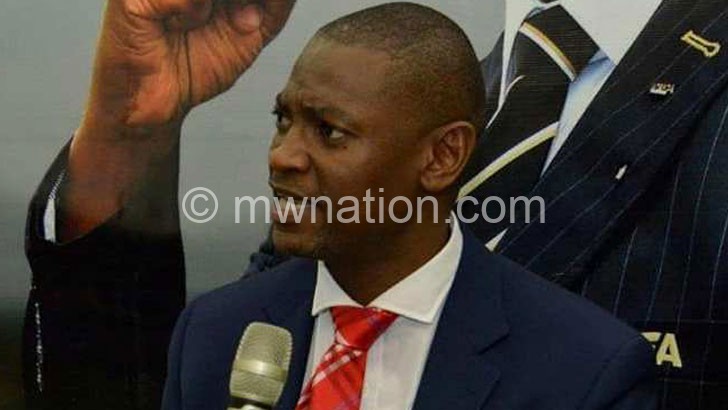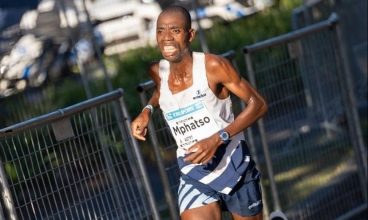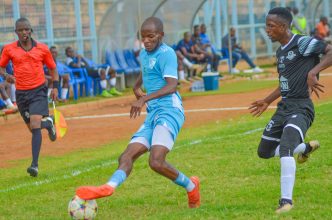Bar raised
Local sports associations must brace for reforms as African Union Sports Council (AUSC) Group 5 has set new minimum electoral requirements for influential positions which are higher than the country’s designated standards, Weekend Nation has established.
However, experts have warned that the enforcement will likely meet legal hurdles as most local associations have their own constitutions and efforts to amend them to match the international body’s reforms may be frustrated.
The AUSC Group 5-formulated minimum requirements will bar those without a diploma and experience in management and entrepreneurship from vying for president, vice-president and general secretary positions.

Currently, the country’ set standards for those positions is the Malawi School Certificate of Education (MSCE) which most sports associations breach at will.
The AUSC Group 5 is an Africa Union arm, whose responsibility is to develop sports in nine countries, including E-swatini (formerly Swaziland), Malawi, Zambia and South Africa.
Confirming the development, the council’s chief executive officer (CEO) Stanley Mutoya said the new rules were approved by ministerial council of the member countries.
He said the key aim is to ensure that sports has administrators that are capable of steering the industry onto a path of success on the field and economically.
“We want sports bodies to operate as commercial entities. We can achieve this through having officials that have strong academic backgrounds and experience in management and entrepreneurship or related fields,” Mutoya explained.
He further said they targeted the top positions because they are the ones entrusted with the setting of their institutions’ agenda.
“Our snap survey has showed that most countries that are affiliated to us don’t have highly qualified people to run or manage the affairs of different sports codes. This is the reason we decided to come up with these measures,” Mutoya said.
The AUSC Group 5 CEO was optimistic that the policy will be implemented with the assistance of the member countries’ sports ministries.
“We will be working closely with them to ensure we raise awareness and see to it that all players in the sports industry adopt the agenda. It is good for development of our sports industry,” he said.
The reforms, which are coming two years after the Football Association of Malawi (FAM)—which leads the most prominent sport in the country—scrapped off MSCE as a minimum qualification for those vying for its executive committee positions.
FAM affiliates, at that time, also shot down a proposal to approve a degree as a minimum qualification for the position of the president.
In an interview, FAM president Walter Nyamilandu welcomed the reforms saying they are good for the development of football, which he said lacks capable leadership on the continent.
“It is a fact that the game of football in Africa is lacking leadership with the right capability from top to bottom hence the need to adopt such benchmarks,” he said.
However, the FAM boss expressed hope that, in implementing the changes, the AUSC will align its agenda with that of the Federation of International Football Associations (Fifa).
“In football, we are guided by standards that are set by Fifa. There will be a need for the new policy direction that has been set by African Union to align with Fifa statutes. I presume that the engaged process will resume so that we can follow suit,” he said.
Basketball Association of Malawi general secretary Peter Gomani acknowledged that they have not set any minimum requirements for basketball positions’ aspirants.
He was optimistic that the new AUSC Group 5 policy would improve the administration of sports in the country.
“Somehow, laying down minimum requirements will help to bring sanity in our associations. The policy will, undoubtedly, help to bring professionals from different backgrounds into sports administration who would contribute much to the industry,” he said.
Legal expert David Kanyenda said he expects resistance from associations whose leaders do not have the set necessary requirements.
“Resistance may, however, arise due to vested interests by incumbent office bearers, especially those who do not qualify,” he forecasted.
He, however, said that once the AUSC Group 5 starts enforcing the rules, all associations will have to abide or face sanctions.
“Local leadership ought to align their constitutive instruments and statutes to the new standards.
“I would like to believe that errant members that fail to bring their statutes in conformity with the recently promulgated regulations may be sanctioned accordingly,” he said.
Kanyenda also backed the AUSC new rules as good for sports development.
“My understanding is that the introduction of minimum eligibility criteria is a quality control measure designed to ensure that competent personnel administer sports.
“Nowadays sports is no longer a mere pastime and requires a modicum of strategic planning to achieve desired outcomes,” he stated.





